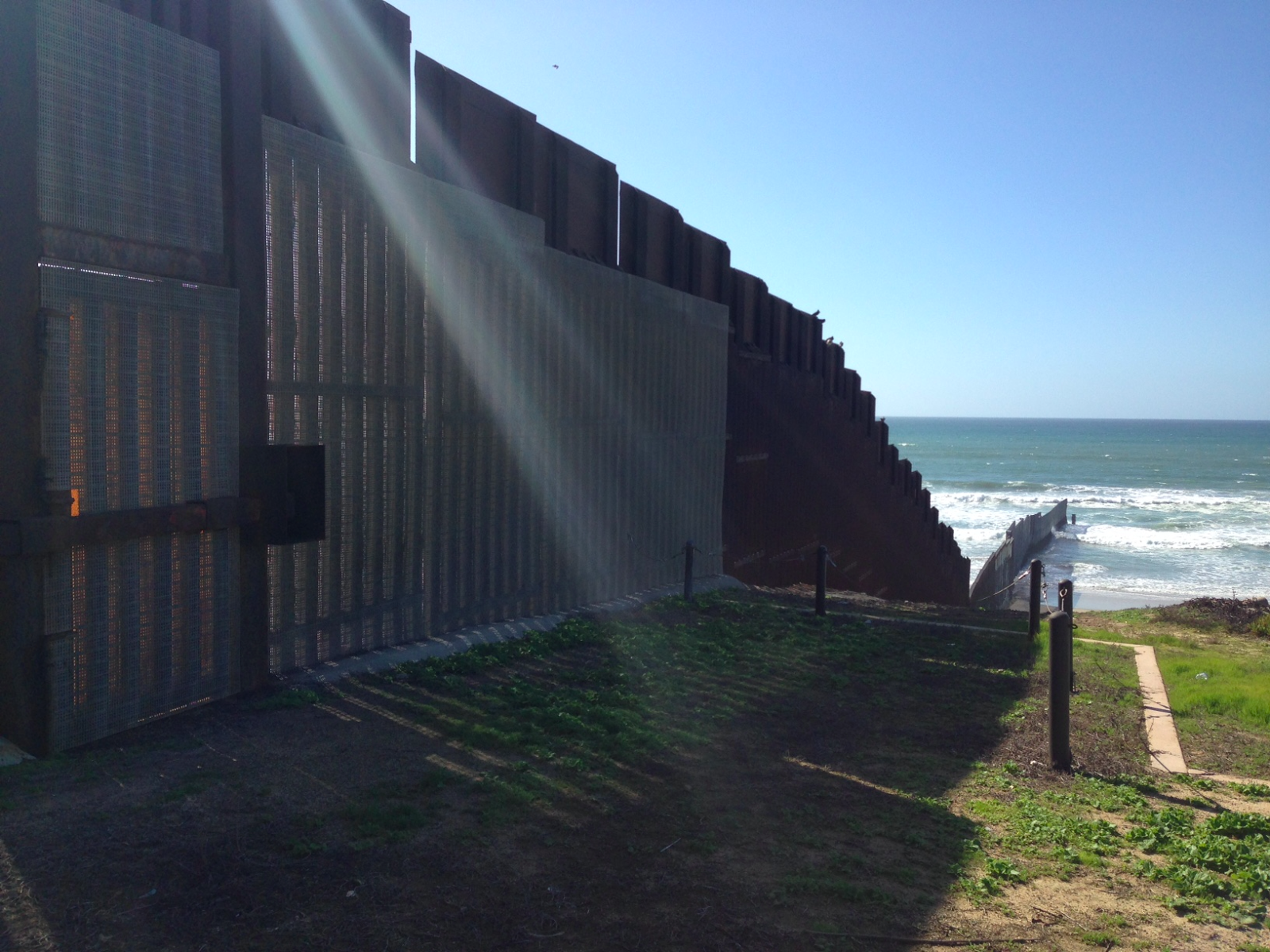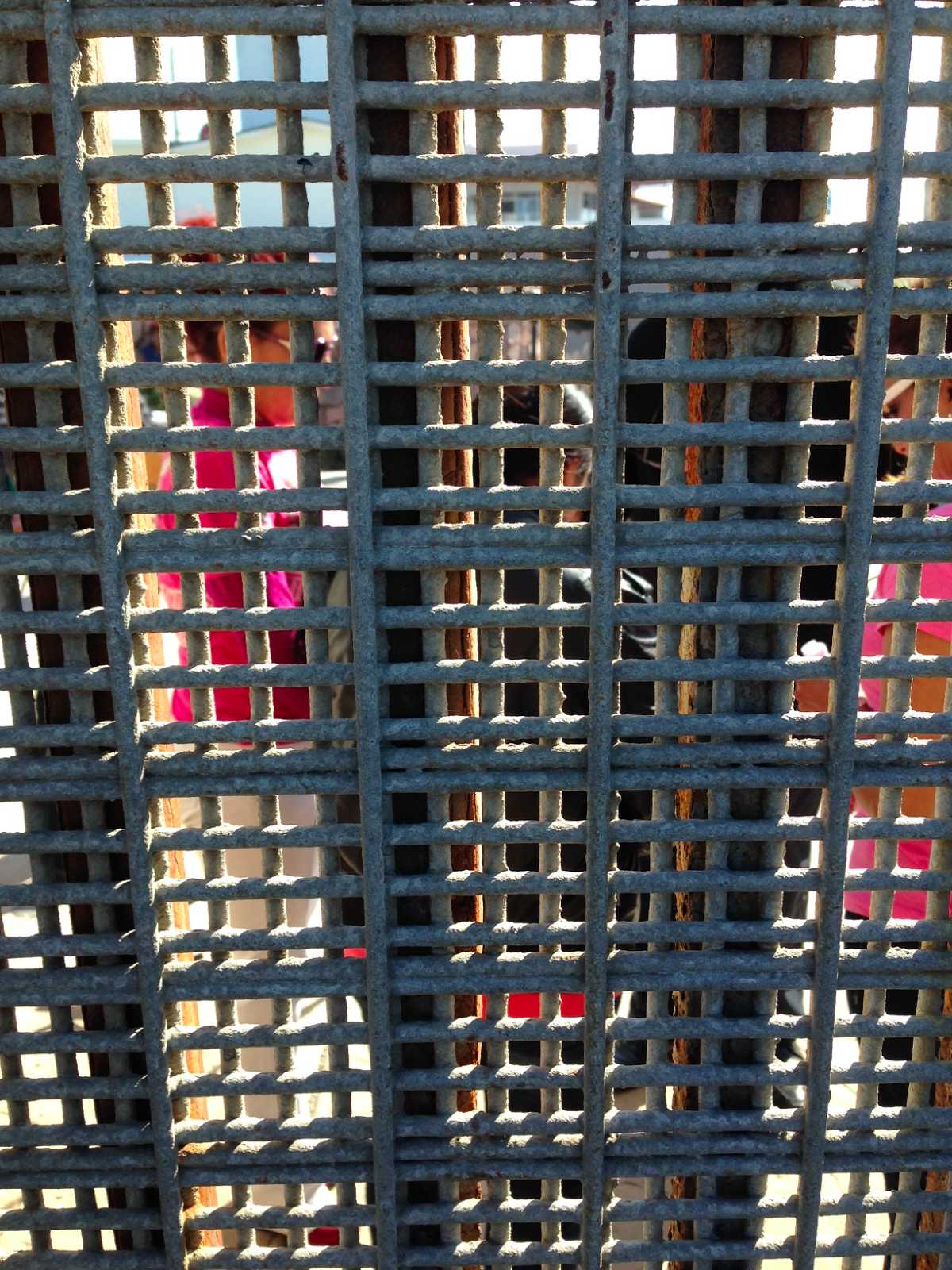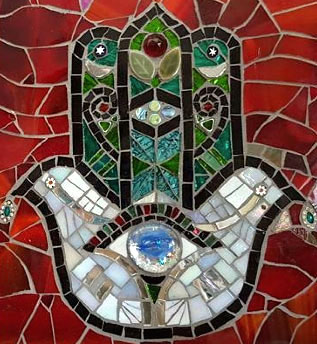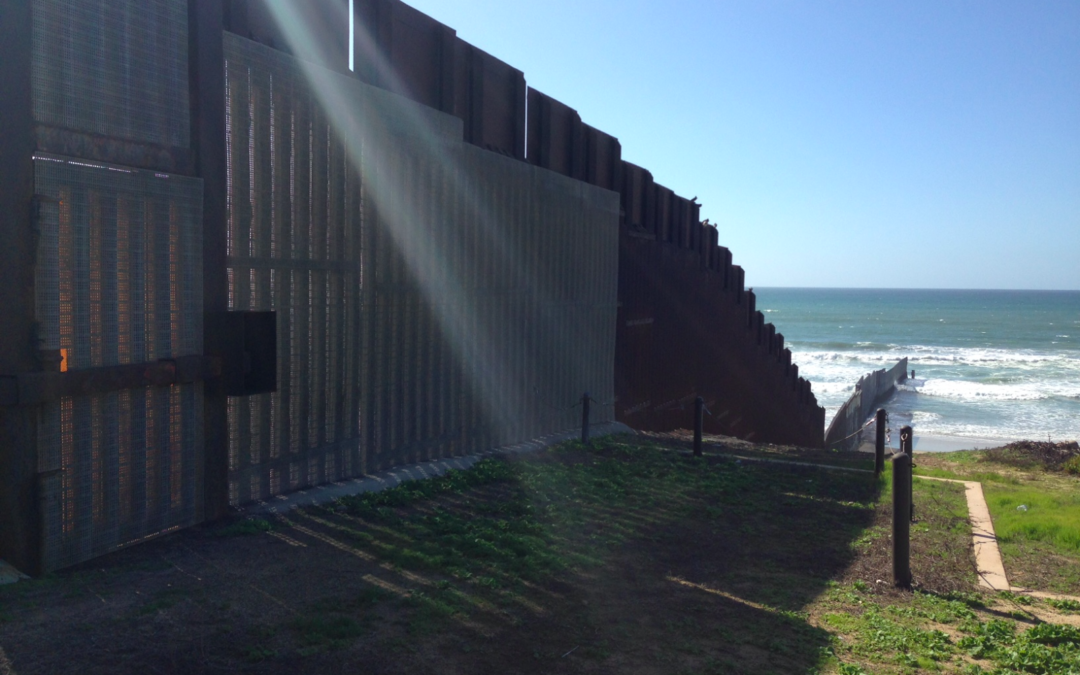By Sydney Levy
Last month, I found myself praying at the Wailing Wall — but I was not in Jerusalem. I was at the wall that separates San Diego from Tijuana. It is a metal structure that extends eastward as far as the eye can see  into the horizon, and that dips westward into the Pacific Ocean. The metal is rusty due to its proximity to the sea, and occasionally it needs to be replaced. A friend of mine remarked that this ongoing process of rusting is the voice of nature itself, shouting against this unnatural division among people and against the heartbreak it creates.
into the horizon, and that dips westward into the Pacific Ocean. The metal is rusty due to its proximity to the sea, and occasionally it needs to be replaced. A friend of mine remarked that this ongoing process of rusting is the voice of nature itself, shouting against this unnatural division among people and against the heartbreak it creates.
Near the border wall, I witnessed plenty of heartbreak and wailing. A mother on the Mexican side told the story of how she had been deported and separated from her children, who then remained in the US. “I was here last Sunday, I am here this Sunday, and I will come here every Sunday until I can see them again and be reunited with them,” she said. She had hoped her children would come to the wall, but knew full well that they probably would not. Being so close to the Border Patrol on the US side of the border would place them in grave danger of deportation. She cried, and from the other side of the wall, I cried with her. 
Had her children been able to come to the Wailing Wall, they would have been able to see and hear their mom — but would be unable to touch her. The metal structure has small holes, small enough that you can see what is happening south of the border, but not large enough for you to even poke a finger through. Even the gentle kindness of human touch is forbidden.
One after another, mothers spoke to us about their loved ones, about their separated families. Their pain was profound and difficult to witness. It reminded me acutely of the many Palestinian families who had been separated, relationships severed, by another wall of injustice.
It was Sunday afternoon. On the US side of the wall, a Methodist pastor was officiating mass in Spanish and English. He had wine. He had bread. He could bless both, but he could not share them with the Mexicans on the other side of the wall.
The pastor prayed. On our respective opposite sides of the wall, we stopped and prayed too. My hands were firmly pressed against the metal that separated me from the Mexican woman on the other side. My eyes met hers through our tears.
I looked toward the place where the wall snakes into the sea, and I prayed for the waters to part so that my Mexican brothers and sisters could walk on dry land around the edge of the wall, to join us. More than that, I prayed for the whole wall to come down, in Tijuana and in Palestine. I prayed for families to be reunited with their loved ones. I prayed for refugee bans to be lifted so that Syrian refugees could find safety here and Palestinian refugees could finally go back to their homes.
Facing the imposing metal wall that separated me from the Mexican mothers on the other side, I found myself praying at the wailing wall. I discovered that the divine presence is not located among ancient stones, but inside the hearts of those who cry out in pain and the hearts of those who heed their call.
Sydney Levy is a member of the caucus of Jews of Color & Sephardi and Mizrahi Jews in solidarity with Palestine. He is also a member of the Steering Committee of the U.S. Campaign for Palestinian Rights. Last month, Sydney spent time at the U.S.-Mexico border, along with the staff and the board of the U.S. Campaign.

